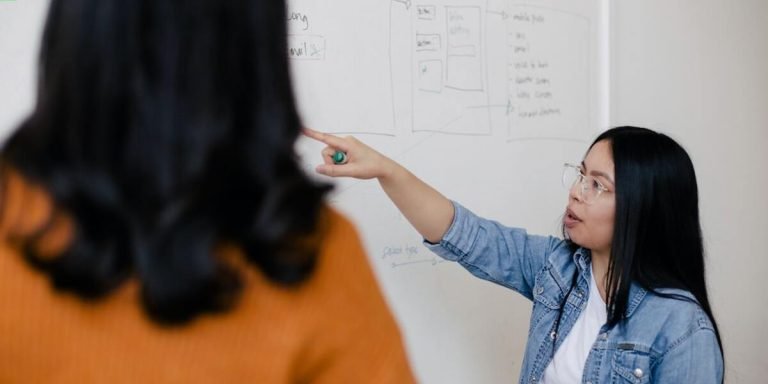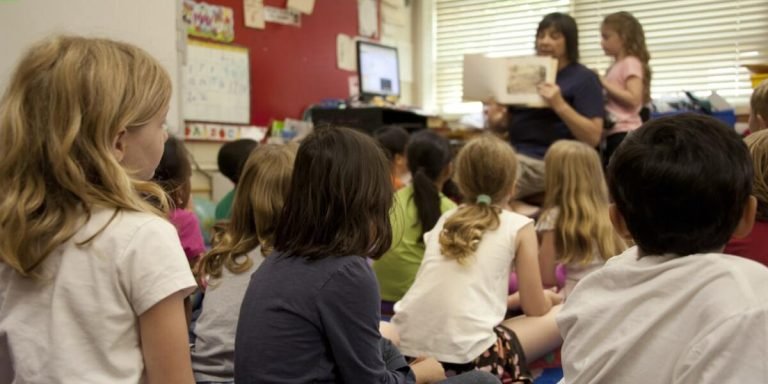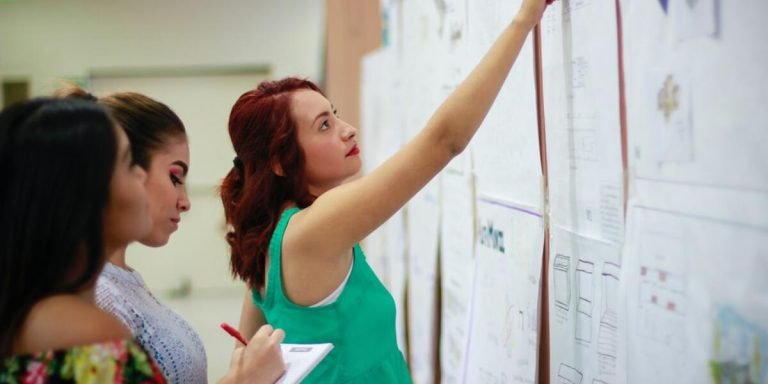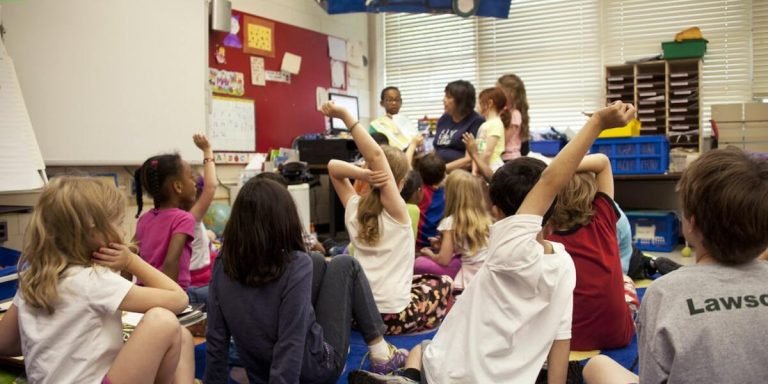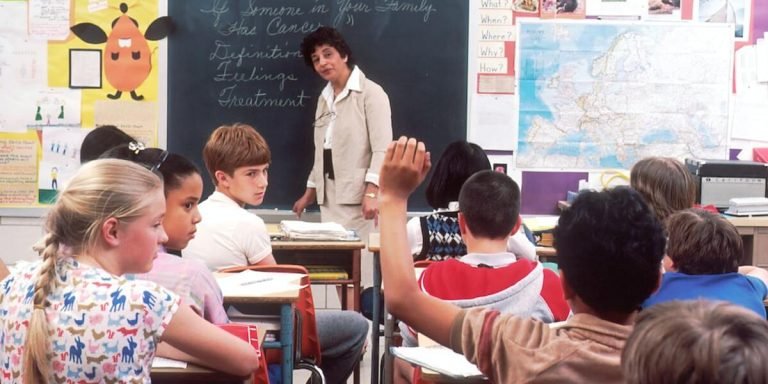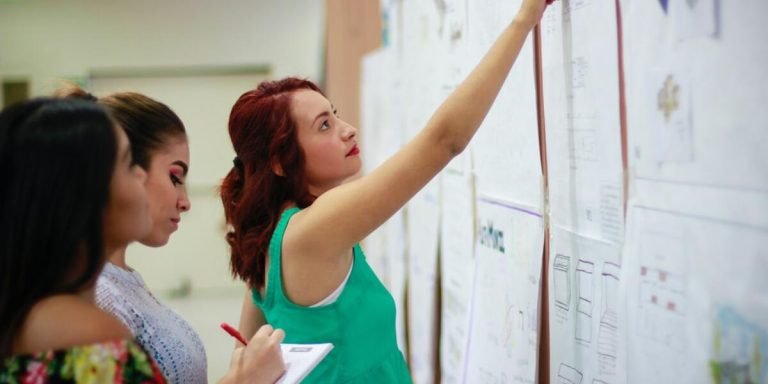Center for Educational Innovation: Transforming the Future of Childhood Education
The Center for Educational Innovation is breaking new ground in the realm of childhood education. This progressive institution is dedicated to developing innovative educational practices that fundamentally transform how children learn and grow. By fostering a robust platform for research, development, and practice, it continually reimagines what’s possible within our traditional schooling systems.
This change has profound implications not just on students but also significantly impacts those who guide their learning process – parents and educators alike. The center provides comprehensive support to these key pillars of a child’s academic journey making them better equipped to nurture young minds in this ever-evolving landscape of modern-day education.
Did you know?
The Center for Educational Innovation is pioneering STEAM-Infused Project-Based Learning, a unique approach that integrates science, technology, engineering, arts and mathematics into daily education to boost student creativity and learning.
Navigating Challenges Together: The Role of the Center for Educational Innovation
In an ever-evolving digital era marked by rapid technological advancements, integrating technology into educational systems can be quite a challenge. Enter the Center for Educational Innovation (CEI). Tasked with shaping future learning environments that balance traditional teaching methods and cutting-edge technologies, the CEI is committed to fostering innovative education practices globally.
The role of CEI extends beyond curriculum development; it serves as a hub where educators and parents converge on strategies aimed at enhancing student’s adaptive skills in this digitized age. Their guidance helps navigate obstacles inherent to technology integration such as resistance to change or lack of resources, paving the way for collaborative problem-solving efforts that help children thrive acadically while nurturing creativity.
This bridge-building initiative taken up by CEI transcends geographical boundaries – enabling global access to collective experience, knowledge sharing and brainstorming sessions from stakeholders across diverse education ecosystems. Such dynamic interplay sparks fresh perspectives on challenges faced during tech-integration processes lending weightage not only towards academic excellence but also molding resilience amongst youngsters adapting their intellects amidst fast-paced changes our world presents today!
Addressing Learning Gaps Through Collaboration
The Center for Educational Innovation is designed to encourage collaboration, particularly when it comes to bridging learning gaps. As we move further into 2023, realizing the potential of technology in education becomes more crucial than ever before.
In order to ensure no child is left behind, parental and educator support plays a pivotal role in implementing innovative techniques within educational settings. By doing so, this dynamic duo can adapt their strategies according to each child’s individual needs.
Firstly, let’s examine how partnering with an institution such as the center for educational innovation aids these efforts significantly. This organization works tirelessly towards integrating modern technologies into classrooms effectively and efficiently – providing practical solutions that resonate well with today’s digital era youngsters.
What does this look like? It involves interactive online lessons replacing traditional chalkboard methods or gamification tactics being used instead of old-school rote memorization practices; even virtual reality environments come into play – all making learning much more engaging and comprehensive!
Secondly on our list centers around understanding children better via data analytics tools offered by entities like them. Detailed reports provide deep insights about students’ performances which help teachers devise personalized teaching plans while parents gain clarity regarding where extra attention may be required at home.
Fostering a Community-Centric Approach to Education
The Center for Educational Innovation plays a central role in fostering a community-centric approach to education. As we embark on the journey of integrating technology into our children’s learning spaces, guidance and support from trusted entities like these become crucial.
Parents and educators are at the heart of this transformative phase. Their active involvement is key in understanding how digital tools can enhance teaching methodologies while maintaining a balanced approach that doesn’t compromise traditional values.
By offering extensive resources specifically tailored towards parents’ needs – such as webinars, workshops or one-to-one consultations- they are empowered with information to make informed decisions about their child’s scholastic path. These initiatives not only build confidence but also create an environment conducive for open dialogue between all stakeholders involved in shaping young minds.
On another front, The Center provides continuous professional development opportunities for educators through advanced training programs focused on edTech integration methods suitable for various age groups. This proactive measure ensures teachers stay up-to-date with cutting-edge technologies paving way for innovative pedagogical strategies being introduced into classrooms regularly across 2023.
Apart from these services targeted individually towards parents and teachers respectively, there is also emphasis placed upon building strong partnerships among them within school communities via collaborative platforms provided by the “center”. Such interactions lead to shared understandings setting concrete foundations necessary during challenging periods associated with major shifts taking place globally – be it adopting new curriculum standards or transitioning fully onto virtual settings amid unprecedented times.
Integrating Technology and Innovations in Teaching Practices
In a rapidly evolving world, the Center for Educational Innovation opens new doors in learning experiences by integrating technology and innovations into teaching practices. Technology is no longer an extraneous part of education; it has become indispensable to create engaging classrooms that foster critical thinking skills and unleash creativity among students.
The targeted use of educational technologies can transform traditional teacher-led instructions into student-centered interactive sessions. For instance, cloud-based collaborative tools enable real-time group projects promoting teamwork while digital simulations offer practical experience enhancing holistic understanding. Such innovative methods facilitate differentiated instruction catering to diverse learner needs effectively.
This shift towards technologically powered pedagogy requires parent-teacher collaboration more than ever before. The role of parents extends beyond just monitoring screen time or controlling device usage – they are now active partners in their child’s virtual academic journey too. Similarly, educators need support in terms of professional development programs focusing on efficient tool application and troubleshooting tech issues.
Regular workshops organized by the center provide much-needed guidance helping both parents and teachers adapt to this transformative realm confidently thereby ensuring continuity as well as quality of childhood education despite changing dynamics prompted by technological advancements leading us into 2023 with promising prospects in future-ready schooling initiatives.
Advancing Pedagogy with Modern Tools and Resources
With the rapid evolution of technology, traditional teaching methods are gradually making way for more advanced practices. The center for educational innovation is at the forefront in bridging this gap between old and new by integrating modern tools and resources into everyday pedagogy.
One key area they focus on is providing support to both parents and educators alike. With a multitude of digital platforms available today, it can often be overwhelming to determine which ones offer true value in enhancing children’s learning experiences. That’s where the center steps up; cutting through clutter with expert recommendations tailored according to individual needs.
Providing access to high-quality online sources contributes significantly towards advancing pedagogical strategies – all while saving time spent researching reliable material from vast amounts available online.
Interactive apps or websites that encourage elements such as gamification not only make lessons enjoyable but also stimulate critical thinking skills among students – an essential ingredient for future success.
Personalizing Student Learning Experiences through Tech Integration
Integrating technology in the classroom is not just about making learning fun or keeping pace with digital advancements. It’s a necessary component of modern education, as it helps to create personalized student experiences that are more engaging and result-oriented.
One such avenue for realizing this integration is through the center for educational innovation. Here, revolutionary ed-tech strategies are continuously developed and refined to maximize their impact on teaching practices around the globe.
For instance, consider adaptive learning systems – intelligent software programs designed to cater instructions according to each child’s unique needs. These programs leverage algorithms and data analytics by continually assessing students’ performance levels while providing real-time feedback. In doing so, lessons become tailored specifically towards individual strengths and weaknesses resulting in improved academic progress: an experience akin to one-on-one tutoring but accomplished at scale!
Collaborative platforms like Google Classroom also play significant roles in personalizing education via tech integration. They allow teachers not only distribute assignments digitally but track progression on projects both individually and group-based dynamically thereby nurturing cooperation among students irrespective of location barriers.
Building Effective Partnerships Between Parents and Educators
In our constantly evolving educational landscape, the role of centers for educational innovation is paramount. Education technology integration has moved from an add-on to a necessity in 2023. One crucial aspect of this development lies in forging effective partnerships between parents and educators.
Parents and educators must collaborate closely to ensure students reap maximum benefits out of technological advancements in education. They need to actively bridge any digital gaps that may exist between home and school environments. By working collaboratively, they can create more engaging learning experiences using ed-tech solutions tailored according to each child’s capabilities.
Moreover, through these alliances, both parties share insights into children’s engagement with tech-based learning tools – their likes-and-dislikes or what works best for them – some valuable feedback which comes only by consistent interactions over time at home stretches than confined classrooms alone could offer before.
Such shared knowledge aids immensely as inputs while developing new curricula or training programs via modernistic technologies thus synergizing efforts towards optimal childhood education today.
Strategies for Enhancing Home-School Communication
To foster a productive and effective relationship between parents and educators, we cannot overlook the significance of enhanced home-school communication. The center for educational innovation has outlined several strategies to uplift this aspect in our contemporary setting.
One such strategy is leveraging technology as an integral tool. Living in 2023, more than ever before, technological platforms have become accessible mediums to establish regular contact with families. Use of emails or school app notifications can keep parents updated about their child’s academic progress regularly without needing physical presence all the time.
Another potent method lies within creating digital spaces that are shared by both parents and teachers alike. Platforms like Google Classroom or ClassDojo offer opportunities for real-time interactions enabling prompt exchanges on student’s achievements or areas that require attention.
Organizing virtual parent-teacher meetings at flexible timings can further bridge gaps tied up with geographical distances which gives rise to uninhibited dialogues focusing solely around children’s education.
As part of these endeavors towards “Parent and Educator Support”, it helps sharing not just academic reports but also classroom experiences where photos & videos play great roles by giving glimpses into students’ school lives making remote parenting somewhat tangible!
Let us never forget how powerful personalized messages could be! A simple note appreciating a child’s efforts goes a long way fostering strong relationships amongst all stakeholders involved: Parents – Child – Teachers triumvirate!
Finally while nothing beats traditional methods completely, sending newsletters still holds appeal among many communities besides keeping everyone well aware about upcoming events thus actively engaging them throughout the year.
Empowering Stakeholders to Support Holistic Child Development
In our current 2023 dynamic technology-integrated society, it becomes critical that these partnerships not only focus on academic growth but also emphasize holistic child development.
Let’s look at how we can empower stakeholders:
Effective parent-educator relationships require frequent interaction based on mutual trust. Schools should encourage open communication between teachers and parents using various tech platforms like emails or mobile apps.
Workshops offer a practical platform to discuss childhood development issues openly and collaboratively come up with solutions – all while embracing modern learning tools as embraced by centers for educational innovations.
Parents should take an active role in school-based decisions concerning their children’s welfare; after all, no one understands them better than themselves!
4.Utilizing Technology For Better Interaction:
With our world becoming increasingly digitalized since even before 2020 – use of virtual meeting platforms has become an integral aspect when communicating about students’ progress reports or discussing strategies to enhance their skills diligently.
By adopting these practices , bringing together parents and educators offers exciting possibilities promoting cooperative efforts toward quality education — highly emphasizing integration of cutting-edge technologies.
Conclusion
In a nutshell, the center for educational innovation is reigniting the spark of learning in children through unconventional methods that capitalize on their curiosity and zest. It’s more than just writing or mathematics; it’s about nurturing an environment where creativity blooms so that every child can exceed their academic potential.
Feel free to navigate around our website as we delve deeper into this critical aspect of childhood education. Here you’ll find numerous resources designed specifically with parents and educators like YOU in mind – offering insights into ways to transform your approach towards educating young minds. Remember, together we have the power to shape future generations with innovative teaching practices!


